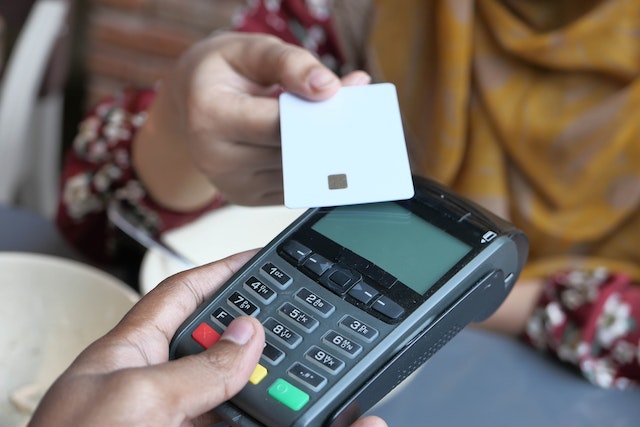11+ Cryptic Cryptocurrency Canada Statistics
Table of Contents
Canadian crypto is in a somewhat tricky situation. While cryptocurrencies are not legal tender in Canada, there are legal ways to use crypto, and that’s what we’re going to talk about today. We’ll also tackle such issues as how to invest in cryptocurrency in Canada, mining, and laws and regulations surrounding this topic.
The thing is:
Cryptocurrency Canada statistics, as is the case with many other countries, show a general trend of rising crypto popularity and adoption.
Before we move on, here are the essential cryptocurrency Canada stats for those in a hurry:
Fascinating Cryptocurrency Canada Stats (Editor’s Choice)
- In 50 top Canadian cities, there are more than 1000 crypto ATMs.
- 4% of the Canadian population, around 94,000, own or use Bitcoin.
- 0.9% of the Canadian population, just below 37,000, own Ethereum.
- Toronto is by far the largest crypto center, with 370 Bitcoin ATMs.
- Vancouver has more than 100 businesses accepting crypto as a method of payment.
- With up to US$5 billion worth of crypto, Joseph Lubin is by far the wealthiest man in Canada in this respect.
General Crypto Facts for Canada
1. Is cryptocurrency legal in Canada?
(Source: Library of Congress)
As of 2021, crypto is still not a legal currency in Canada. While the use of digital currency in Canada is legal, cryptos are still illegal. On the other hand, Canadian law – more specifically, income tax law – recognizes cryptocurrencies as commodities. What this means is that using cryptos to pay for goods and services is actually considered barter.
2. Cryptocurrencies are taxable in Canada, with 50% of capital gains and all business income.
(Source: Canada.ca, WOWA)
Although most people think crypto is a good way to avoid the taxman, that’s not really the case. Governments all around the world have realized they can earn a lot of money from this new blockchain technology, and they will do all it takes to get what’s theirs.
Here’s the deal:
Canada cryptocurrency tax regulations are pretty complex, but here are the most important facts:
Business income is fully taxable – if you invested $10,000 worth of crypto and earned $15,000, only $5,000 is taxable.
50% of capital gains (all income that’s not related to crypto business)
Tax rates rise progressively with income. Keep in mind that most people dealing with crypto in Canada are subject to business income tax law, as they are working with crypto continuously.
3. Business income tax (up to 16%) is the best bet for the crypto community in Canada.
(Source: Canada.ca)
This is probably the single most important Canada cryptocurrency regulation. For crypto businesses earning less than $500,000 per year, the maximum tax rates vary from 12% to 15% in most provinces.
According to the cryptocurrency Canada tax regulations, it is much more profitable for Canadians to define their crypto actions as a business. In this case, it will be easier to get tax abatements and reductions.
Cryptocurrency Canada Usage Stats
4. Around 4% of the Canadian population uses Bitcoin.
(Source: Statista)
According to cryptocurrency statistics from Canada from 2019, 3.89% of Canadians use Bitcoin. Next comes Ethereum with 0.9%, followed by Ripple (0.75%), Litecoin (0.7%), and Dash (0.5%).
More recent Bitcoin stats would probably show a slightly wider acceptance of Bitcoin. However, we have to wait a bit longer for the official stats on crypto acceptance in Canada.
5. In 2019, the use of crypto among older adults grew by 1.7%.
(Source: Statista)
Adolescents and younger adults are still by far the quickest to accept the new trends. However, Canadians aged 35-54 are starting to catch up. The acceptance of cryptocurrencies has grown even among senior citizens, especially since the value of Bitcoin began to surge.
6. Vancouver leads the pack with 101 businesses that accept crypto.
(Source: Statista)
According to cryptocurrency statistics from Canada for 2021, Vancouver is the most crypto-friendly city in Canada. Toronto is second with 72 businesses that accept cryptocurrencies. Next comes Ottawa, with 32 crypto-friendly companies, followed by Edmonton with 23.
So if you ask where Bitcoin is accepted in Canada – practically in all bigger cities. If you take a good look, you’ll be able to find various businesses that will accept your crypto in exchange for goods and services.
7. Canada has 1042 Bitcoin ATMs.
(Source: Statista)
Bitcoin in Canada is a big thing, especially if we consider the sheer number of Bitcoin ATMs. In fact, Canada ranks second in the world in this respect, only behind the absolute champion, the US.
Now:
The US indeed has ten times more crypto ATMs. However, the US also has a population roughly ten times larger than that of Canada. In other words, the availability of Bitcoin ATMs is approximately the same on both sides of the border.
8. Toronto has 370 Bitcoin ATMs, cryptocurrency Canada statistics reveal.
(Source: Statista)
This is not surprising since it’s the biggest city in Canada. Toronto is followed by Vancouver (134), Montreal (120), and Calgary (109), which are all cities where you can pretty easily find Bitcoin ATMs. Considering that Montreal is an AI and tech centre, one would presume that this city would lead the pack in crypto acceptance. While the crypto Quebec community is very much alive, it is trailing behind other provinces, mainly Ontario.
As you can see, cashing out crypto in Canada and buying things with crypto is pretty easy in Canada, easier than in the rest of the world (excluding the US).
9. 1 Bitcoin is worth about $40,000.
(Source: Paxful)
Needless to say, Bitcoin is not the most stable currency in the world. So, the BTC to CDN exchange rate tends to vary.
That being said:
Bitcoin price in Canada is pretty much the same as in the rest of the world. As a result, those who want to invest in Bitcoin need to bear in mind these fluctuations and volatility.
Bitcoin rate in Canada depends on various factors. Often, it is not easy to predict the effects of all these factors on the price.
10. With more than 350 altcoins, Binance is perhaps the most popular crypto exchange in Canada.
(Source: Coinmarketcap)
We don’t know for sure, as cryptos are pretty hard to track (that’s the whole point). However, some estimates put Binance, Bitbuy, and Coinbase at the top of the list.
Using Coinbase in Canada becomes a more and more popular option. This is part of a more general trend that sees Coinbase as one of the most popular crypto exchanges in the US and globally.
11. Joseph Lubin, one of the Canadian founders of Ethereum, has amassed up to US$5 billion worth of crypto.
(Source: Telegraph)
Some estimations are more conservative, putting Lubin’s crypto net worth at around US$1 billion. Lubin, one of the fathers of crypto mining in Canada, is also the man behind ConsenSys.
The thing is:
As Canada is relatively lenient towards cryptos, plenty of investors are considering mining cryptocurrency in the Great White North.
12. 39% of younger Canadians believe cryptocurrencies are a lucrative investment and worth the risk.
(Source: Newswire)
Canadians aged 18 to 36 are much more likely to endorse the use of cryptocurrencies (39%) than older generations. Senior citizens are expectedly the least inclined towards investing in Bitcoin in Canada, with around 5% of them deciding to pursue this business venture.
In Conclusion
Although we won’t be seeing Bank of Canada cryptocurrency anytime soon, it still seems that the future of mining in Canada is pretty bright. With both domestic and foreign assets, Canada is one of the countries that spearhead the ascent of cryptocurrencies.
With crypto currency prices constantly fluctuating and seemingly rising, cryptocurrency Canada statistics suggest many more people will invest in Bitcoin.
This goes for other cryptos, too. In the next decade, we might see a more comprehensive initiative by the government to regulate blockchain technology and possibly develop its own cryptocurrency that will be used exclusively by Canadians.
Who knows, by then, we might even get a universal, global cryptocurrency endorsed by all countries? Watch this space.
FAQ
Cryptocurrency is not legal tender in Canada. All cryptos are considered a commodity, which means you can trade them for other goods and currencies, provided this transaction is labeled as “barter.”
Cryptos or, more likely, one cryptocurrency will become officially legal in Canada once the government chooses to develop its own.
At least 4% of Canadians invest in Bitcoin. The percentage of other cryptos is mostly below 1%. As many people invest in different cryptos at the same time, it’s pretty hard to accurately estimate the exact percentage of Canadians who invest in any crypto. Still, it’s probably more than 4%.
Around 94,000. According to 2020 cryptocurrency Canada statistics, that’s significantly more people than those who own Ethereum – 0.9%.
Most likely. At the moment, it seems that the Canadian crypto community is growing, receiving important investments from China and other nations that have more difficult crypto regulations.












